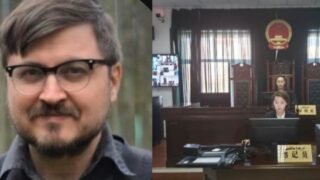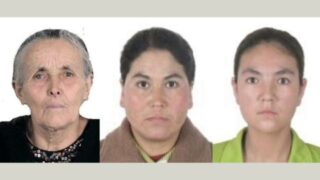To make sure that their devious acts are not made public, authorities are chasing for whistleblowers who expose them. The arrested could face severe punishment.
by Zhang Feng
Since its founding, Bitter Winter has revealed numerous CCP documents that were the basis for crackdowns on religion across China, be it provincial campaigns to eliminate places of worship that are not under the government’s control, “sinicization” of Muslims in Xinjiang and outside it, or specialized crackdowns on religious movements and groups, such as The Church of Almighty God. The documents have given the irrefutable evidence of the CCP’s violations of religious liberties and human rights, perpetrated against its citizens.
Many of the exposed documents were not top-secret, intended to be treated with the highest level of confidentiality. They didn’t reveal all dirty, behind-the-scenes details of the CCP’s dealings to suppress the religious. These documents merely represent a drop in the ocean of the CCP’s wrongdoings.
Regardless, this has still touched on a CCP’s sensitive nerve. To prevent the reality of its persecution from being exposed, the CCP has launched an operation to track down and persecute the whistleblowers in mainland China who provide news and government documents to media and other sources, like Bitter Winter.
It isn’t hard to understand why. In China, anything that the CCP believes will cause people to question the regime is deemed “confidential” – from information about natural disasters and epidemics to small-scale protests against the government. The dissemination of any such “confidential” information, let alone direct evidence of the CCP’s religious persecution and human rights violations, is prohibited.
Bitter Winter managed to obtain some documents on comprehensive investigations to prevent leaks, issued in May and June by specialized groups within Communist Party committees that are in charge of the protection of secrets in the province of Shandong, Henan, and other areas of the country.
Provisions in the documents demonstrate that the CCP-planned leak prevention actions are extensive and ordered to be implemented on provincial, city, and county levels. Some materials also include orders to investigate state-run institutions, like universities.
The personnel that have access to secret information are ordered to undergo specialized training and have to sign “confidentiality commitments.” Regular supervisory visits by higher-ups are foreseen to check on their work, and the daily supervision of personnel in Party committees and government institutions is strengthened by investigating their general performance and attendance as well as making sure that they do not collect and transmit confidential information through emails, social messaging platforms like WeChat and Weibo, or mobile phones and applications. In cases of personnel’s travels abroad, details about their trips are investigated as well.


The documents also call for a comprehensive, all-encompassing inspection into the storage of government documents in paper and on USB flash drives and optical discs, as well as online dissemination of such materials.
Insiders from several local governments have reported to Bitter Winter that authorities there have conducted investigations into document-archiving issues. To prevent the documents from being leaked, they are often read aloud in meetings and are prohibited from being issued on paper. Those present in the meetings are only allowed to take some notes.


Some local governments have also called for investigations into all “intelligence gathering and theft of [government] secrets by hostile foreign forces.” The CCP designated Bitter Winter as an “overseas hostile website” right after its inception in May 2018, when we published a report about the crackdown on South Korean Christian groups in China, based on a secret document.
According to government insiders, the CCP attaches great importance to incidents of internal documents being leaked to Bitter Winter and other sources. All individuals who may have been in contact with these documents are under investigation. To find the leakers, authorities have performed fingerprint tests, used lie detectors, scanned smartphones and other equipment that may be used to take photos.
Since last year, at least 45 Bitter Winter reporters have been arrested; many remain detained to date. Even the close relatives of suspected individuals have been investigated and arrested. According to a source inside the government, those who are charged with “leaking state secrets,” may face heavy sentences.









